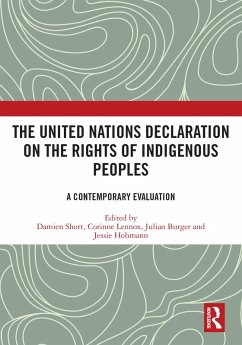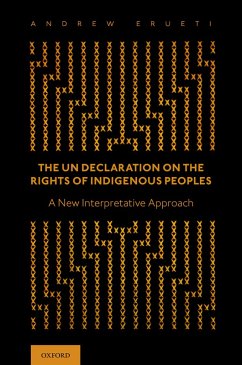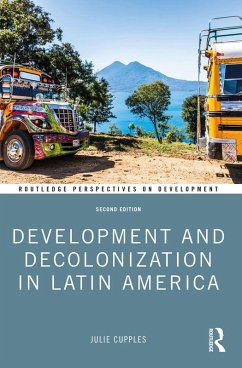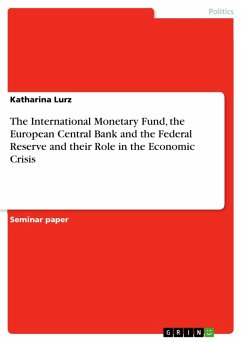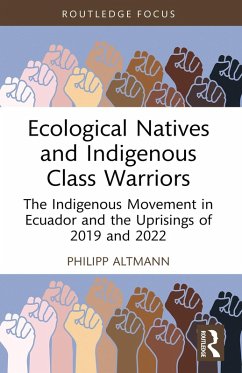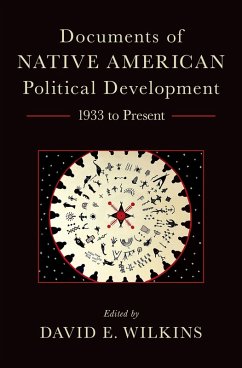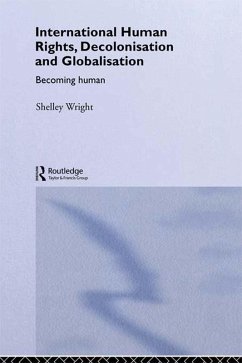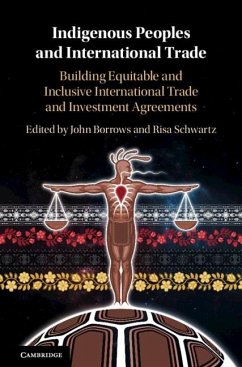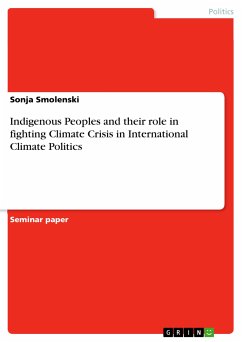
Indigenous Peoples and their role in fighting Climate Crisis in International Climate Politics (eBook, PDF)
Sofort per Download lieferbar
Statt: 17,95 €**
15,99 €
inkl. MwSt. und vom Verlag festgesetzt.
**Preis der gedruckten Ausgabe (Broschiertes Buch)
Alle Infos zum eBook verschenkenWeitere Ausgaben:

PAYBACK Punkte
0 °P sammeln!
Seminar paper from the year 2021 in the subject Politics - Environmental Policy, grade: 1,0, , language: English, abstract: The following paper examines the implementation of indigenous rights in international climate policy to date. First it will show why the climate crisis is a component of colonial continuities in order to better understand what roles indigenous peoples play in international climate policy today. After that, the impact of the climate crisis on the rights of indigenous peoples and why they are at the same time a key figure in the fight against climate change will be revealed...
Seminar paper from the year 2021 in the subject Politics - Environmental Policy, grade: 1,0, , language: English, abstract: The following paper examines the implementation of indigenous rights in international climate policy to date. First it will show why the climate crisis is a component of colonial continuities in order to better understand what roles indigenous peoples play in international climate policy today. After that, the impact of the climate crisis on the rights of indigenous peoples and why they are at the same time a key figure in the fight against climate change will be revealed. The third section highlights the demands of indigenous associations that are supported by international law. The main section then analyzes previous international climate negotiations and decisions and shows the challenges that have arisen to date in the inclusion of indigenous rights. Indigenous peoples, who comprise an estimated 400 million people worldwide or 5% of the total population in more than 90 Countries, are one of the communities most affected by climate change and simultaneously play a key role in climate change mitigation through their centuries-old, nature-adapted ways of life. The international community and the climate research community have long overlooked the important role that indigenous peoples have in combating climate change, and have excluded their perspectives from climate negotiations, even though they have the necessary knowledge and manage the most resource-rich areas of the world. 80% of the world's remaining biodiversity is located in indigenous territories, which are in or near 85% of the world's protected areas . Indigenous peoples manage at least 17% of the carbon that is stored in global forests. This is equivalent to 33 times the global energy emissions from 2017. Indigenous lands, such as the Amazon basin with its rainforest resources, thus harbor enormous potential to mitigate climate change and its consequences .
Dieser Download kann aus rechtlichen Gründen nur mit Rechnungsadresse in A, B, BG, CY, CZ, D, DK, EW, E, FIN, F, GR, HR, H, IRL, I, LT, L, LR, M, NL, PL, P, R, S, SLO, SK ausgeliefert werden.





